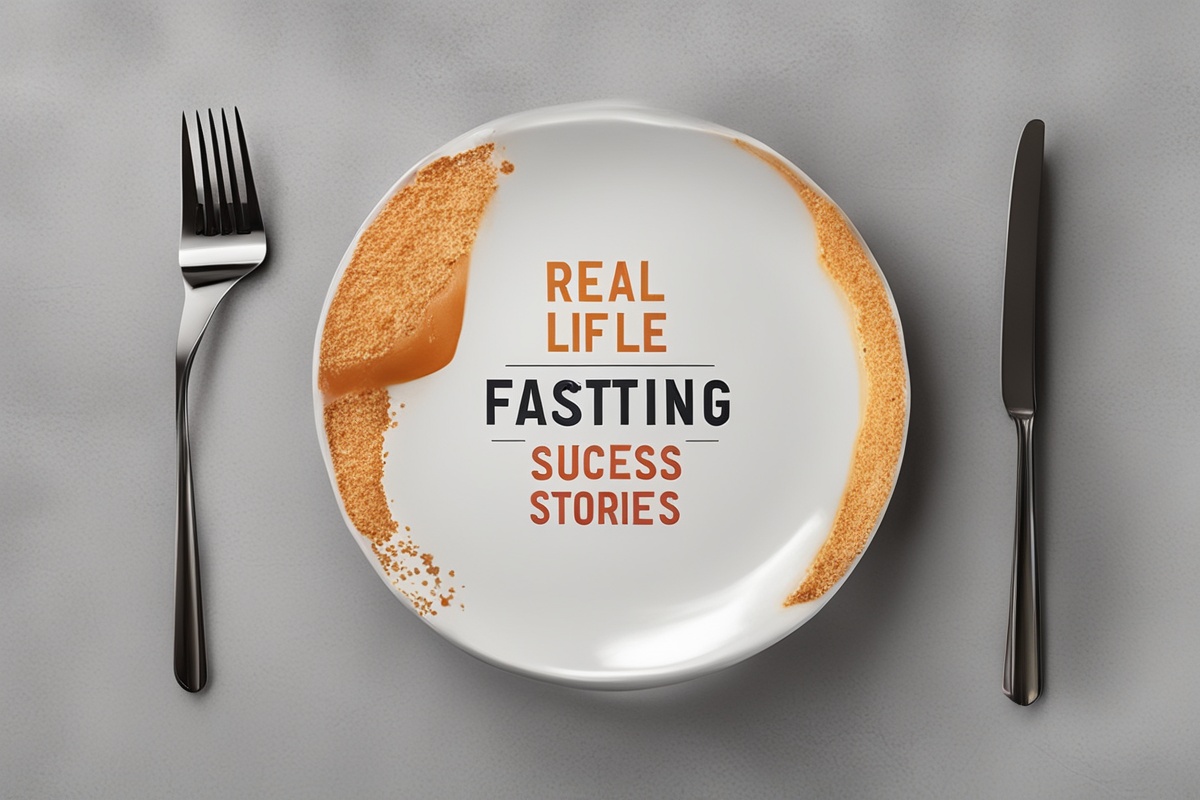Have you ever wondered if fasting could truly transform your life? The idea of abstaining from food for set periods might sound daunting, but countless individuals have experienced incredible results—physically, mentally, and emotionally—through this ancient practice. In this post, we’re diving deep into real-life fasting success stories that highlight the remarkable fasting benefits. From shedding stubborn pounds to gaining mental clarity, these stories aren’t just inspiring; they’re proof that fasting, when done right, can be a game-changer. Whether you’re a beginner curious about intermittent fasting or a seasoned faster looking for motivation, stick with me as we explore these transformations, backed by science and practical tips to help you succeed.
The Power of Fasting: Why It Works
Fasting isn’t just a trend; it’s a practice rooted in human history, often tied to religious and cultural traditions. But beyond spirituality, modern science has uncovered why fasting delivers such impressive health perks. When you fast, your body shifts into a state called ketosis, where it burns stored fat for energy instead of glucose from food. This metabolic switch is one of the key fasting benefits for weight loss (Fung & Moore, 2016). Additionally, fasting triggers autophagy, a cellular cleanup process that removes damaged cells and may slow aging (Bagherniya et al., 2018). These mechanisms explain why so many people report feeling rejuvenated after adopting fasting routines. But don’t just take my word for it—let’s meet some real people who’ve reaped these rewards.
Success Story 1: Sarah’s Journey to Weight Loss and Confidence
Sarah, a 34-year-old mom of two, struggled with post-pregnancy weight for years. She tried every diet under the sun, but nothing stuck. Then, she discovered intermittent fasting (IF), specifically the 16:8 method—fasting for 16 hours and eating within an 8-hour window. Within three months, Sarah lost 25 pounds and noticed a surge in energy. “I used to crash by midday, but fasting gave me focus I hadn’t felt in years,” she shared. Her story highlights one of the biggest fasting benefits: sustainable weight management. Studies support this, showing that IF can reduce body fat while preserving muscle mass (Tinsley & La Bounty, 2015). Sarah’s tip? Start slow—begin with a 12:12 schedule before jumping into longer fasts, and always listen to your body.
Success Story 2: Mark’s Mental Clarity Breakthrough
Mark, a 42-year-old software engineer, wasn’t looking to lose weight when he started fasting. Instead, he wanted to combat the brain fog that plagued his workdays. After adopting a 5:2 fasting plan—eating normally for five days and restricting calories to 500–600 on two non-consecutive days—he noticed a dramatic improvement in focus within weeks. “It’s like my mind was decluttered,” he said. Research backs this up: fasting may enhance brain function by increasing levels of brain-derived neurotrophic factor (BDNF), a protein linked to learning and memory (Mattson et al., 2018). For Mark, the mental fasting benefits were life-changing. His advice to newbies is simple: stay hydrated during fasting windows to avoid headaches and fatigue.
Success Story 3: Emily’s Battle with Chronic Inflammation
Emily, a 29-year-old fitness instructor, dealt with chronic joint pain and inflammation for years, despite her active lifestyle. After researching natural remedies, she tried a 24-hour fast once a week, paired with a nutrient-dense diet on eating days. Over six months, her pain decreased significantly, and she felt more mobile. “Fasting gave my body a chance to heal,” she explained. Science suggests that fasting can reduce inflammatory markers in the body, offering relief for conditions like arthritis (Longo & Mattson, 2014). Emily’s experience underscores the lesser-known fasting benefits for systemic health. Her tip for success? Break your fast with anti-inflammatory foods like berries and leafy greens to maximize results.
Practical Tips to Achieve Your Own Fasting Success
These stories are motivating, but how can you replicate such results? Fasting isn’t a one-size-fits-all approach, and starting without a plan can lead to frustration. Here are some actionable tips to help you harness the fasting benefits while avoiding common pitfalls:
- Choose the Right Method: Whether it’s 16:8, 5:2, or a full-day fast, pick a style that fits your lifestyle. Beginners might find shorter fasting windows less intimidating.
- Stay Hydrated: Drink plenty of water, herbal teas, or black coffee during fasting periods to curb hunger and maintain energy.
- Ease Into It: Don’t jump into a 24-hour fast on day one. Gradually increase fasting duration to let your body adjust.
- Focus on Nutrition: When you eat, prioritize whole foods—think lean proteins, healthy fats, and veggies—to fuel your body properly.
- Track Progress: Keep a journal to note how you feel, any weight changes, or energy shifts. This helps you tweak your approach over time.
Common Challenges and How to Overcome Them
Let’s be real—fasting isn’t always smooth sailing. Even the most successful fasters face hurdles. Here are some challenges you might encounter, along with solutions to keep you on track for those amazing fasting benefits:
- Hunger Pangs: They’re normal at first. Distract yourself with light activity or sip water to trick your stomach into feeling full.
- Low Energy: If you feel sluggish, ensure you’re getting enough electrolytes—add a pinch of salt to your water or sip bone broth if allowed in your fasting protocol.
- Social Pressures: Eating with friends or family can be tricky. Plan fasting windows around social events or explain your goals to loved ones for support.
- Overeating Post-Fast: It’s tempting to binge after fasting. Avoid this by planning balanced meals ahead of time and eating slowly to recognize fullness.
Seeing how Sarah, Mark, and Emily navigated their challenges reminds us that persistence pays off. Fasting isn’t about perfection; it’s about finding a rhythm that works for you. And the health perks? They’re worth the effort. Beyond weight loss and mental clarity, fasting may lower risks of chronic diseases like diabetes by improving insulin sensitivity (Barnard et al., 2019). It’s no wonder so many are jumping on board with this lifestyle.
As we wrap up, I hope these fasting success stories have sparked some inspiration. The fasting benefits—from dropping excess weight to sharpening your mind and reducing inflammation—are within reach if you approach it thoughtfully. Remember, fasting isn’t a quick fix; it’s a sustainable tool for long-term wellness. Start small, experiment with different methods, and celebrate every milestone, no matter how minor. Have a fasting story of your own? I’d love to hear it—drop a comment below or share your journey with our community. Here’s to your health and transformation!
References
- Ageing Research Reviews, 47, 183-197.
- Barnard, N. D., Goldman, D. M., Loomis, J. F., Kahleova, H., Levin, S. M., Neabore, S., & Batts, T. C. (2019). Plant-based diets for the treatment of type 2 diabetes: An updated review of the evidence. Frontiers in Nutrition, 6, 16.
- Fung, J., & Moore, J. (2016). The Complete Guide to Fasting: Heal Your Body Through Intermittent, Alternate-Day, and Extended Fasting. Victory Belt Publishing.
- Longo, V. D., & Mattson, M. P. (2014). Fasting: Molecular mechanisms and clinical applications. Cell Metabolism, 19(2), 181-192.
- Mattson, M. P., Moehl, K., Ghena, N., Schmaedick, M., & Cheng, A. (2018). Intermittent metabolic switching, neuroplasticity and brain health. Nature Reviews Neuroscience, 19(2), 63-80.
- Tinsley, G. M., & La Bounty, P. M. (2015). Effects of intermittent fasting on body composition and clinical health markers in humans. Nutrition Reviews, 73(10), 661-674.






